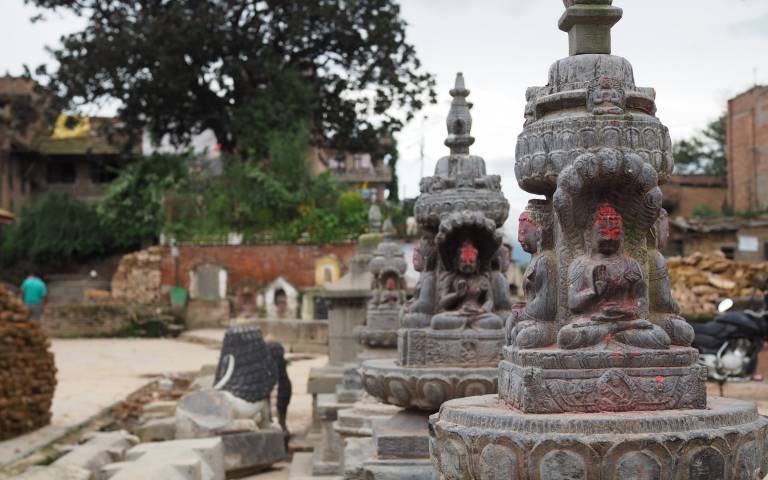Disaster resilience project led by Alejandra Albuerne wins Royal Academy of Engineering award
11 August 2020
The project will initiate an international dialogue with disaster-affected communities on how intangible heritage contributes to recovery.

Led by ISH Lecturer Dr Alejandra Albuerne, the project, ‘Towards mobilising intangible heritage for recovery and resilience’, has received an award of seed-funding from the Royal Academy of Engineering following participation in their March 2020 symposium which focused on Disaster Resilience.
The project also involves a number of global collaborators, from the Silk Cities project (UK/Iran), Blue Fish (Tunisia), De La Salle University, Philippines, Kathmandu Valley Preservation Trust (Nepal), Ozyegin University and Yıldız Technical University, Turkey.
Towards mobilising intangible heritage for recovery and resilience
There is emerging recognition that intangible heritage (IH), i.e. cultural practices, expressions, beliefs, together with traditional and vernacular knowledge and technologies, is important for safe and resilient communities.
These heritage forms are integral components of local culture with potential to support well-being, bring communities together, offer psychosocial relief, strengthen connections to the land, provide sustainable solutions for community needs or opportunities for livelihoods. However, there is a lack of effective heritage integration gap in resilience and disaster recovery frameworks, not only as a necessary consideration for more socially-responsive and sustainable strategies, but as an active tool to support human recovery processes.
As a first step to address this gap, we will carry out a scoping exercise to collect and rationalise evidence of the role of IH in post-disaster recovery aimed at informing the direction of future research for developing frameworks and policy.
The project will initiate an international dialogue with disaster-affected communities, aid organisations and authorities to gather experiences and learnings from recent and ongoing disaster recovery processes that highlight the relevance of IH in these processes.
Dialogues will be structured around workshops in Nepal and Tunisia, affected by disruptive events in the last decade (2015 Nepal earthquakes; 2011 Arab Spring). While international participation will be encouraged, priority will be given to local experiences, in order to gain depth from the data collection by narrowing the context. A strong network of collaborators will be built from these events.
The findings from these workshops will be compiled in a working paper. Furthermore, a roadmap for future research will be devised, identifying gaps, opportunities and direction, aimed at building evidence-based frameworks for recovery and resilience that mobilise the potential of IH. Outcomes will be directly applicable to development practice in Nepal and Tunisia, and expandable to other low- and middle-income countries.
Photo © Alejandra Albuerne
 Close
Close

